
Bipalium is a genus of large predatory land planarians. They are often loosely called "hammerhead worms" or "broadhead planarians" because of the distinctive shape of their head region. Land planarians are unique in that they possess a "creeping sole", a highly ciliated region on the ventral epidermis that helps them to creep over the substrate. Several species are considered as invasive to the United States and to Europe. Some studies have begun the investigation of the evolutionary ecology of these invasive planarians.
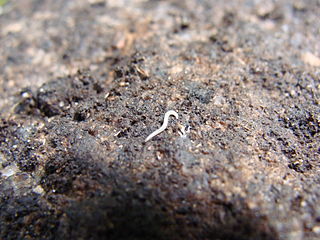
Microplaninae is a subfamily of land planarians.
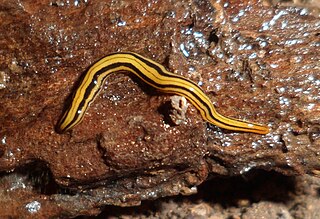
Luteostriata is a genus of land planarians from Brazil characterized by a yellow body with dark longitudinal stripes.
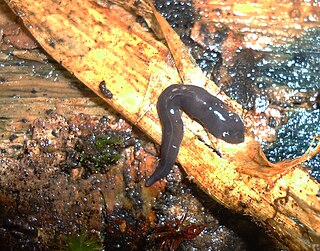
Notogynaphallia is a genus of land planarians from South America.
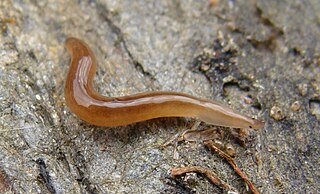
Rhynchodemini is a tribe of land planarians in the subfamily Rhynchodeminae.

Caenoplanini is a tribe of land planarians in the subfamily Rhynchodeminae mostly found throughout the Australasian and Oceanian realms.

Amaga is a genus of land planarians from South America.
Gigantea is a genus of land planarians from the Neotropical realm.
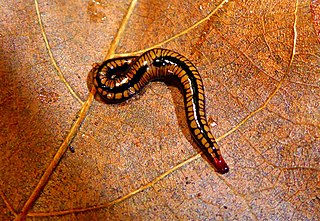
Othelosoma is a genus of land planarians found in Africa and India.
Gusana is a genus of land planarians found in Chile.

Kontikia is a genus of land planarians native from islands in the Indo-Pacific region, but several species have been introduced elsewhere.

Dolichoplana is a genus of land planarians in the tribe Rhynchodemini.

Humbertium is a genus of land planarians of the subfamily Bipaliinae.
Geobenazzia is a genus of land planarians that currently contains a single species, Geobenazzia tyrrhenica, found in Elba, Italy.
Incapora is a genus of land planarians in the subfamily Microplaninae.

Diversibipalium is a genus of land planarians of the subfamily Bipaliinae. It was erected to include species lacking sufficient morphological information to allow them to be classified in the appropriate genus.
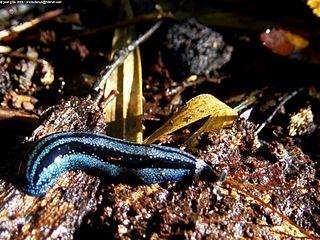
Pseudogeoplana is a genus of land planarians of the subfamily Geoplaninae. It was erected to include species lacking sufficient morphological information to allow them to be classified in the appropriate genus.
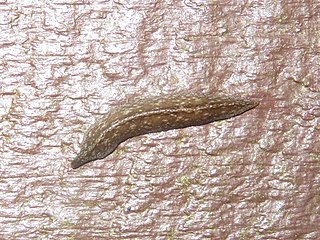
Australopacifica is a genus of land planarians of the tribe Caenoplanini. It was erected to include species lacking sufficient morphological information to allow them to be classified in the appropriate genus.
Anisorhynchodemus is a genus of land planarians of the tribe Rhynchodemini. It was erected to include species lacking sufficient morphological information to allow them to be classified in the appropriate genus.
Pelmatoplana is a genus of land planarians in the tribe Pelmatoplanini.













